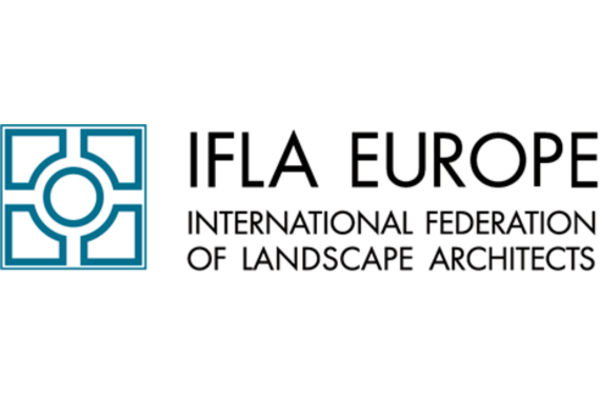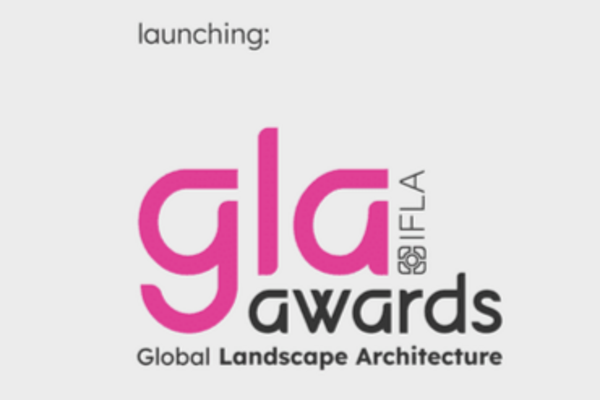“Lost Landscapes”
2023 IFLA Europe Resolution
Naples, Italy – 15 October 2023
We are witnessing a rapid transformation of the planet, of society, and consequently of those territories that inevitably register the transformation of our landscapes, sometimes with the loss of identity that generates a consequential “disorientation”. Transformation entails change to all landscapes whether rural, peri-urban, or urban, but this must be managed to prevent the loss including its cultural heritage relevance. The pace of development, alongside technological innovations coupled with environmental and social issues reduce adequate consideration of how to best manage this. European funding, introduced by the New Green Deal, aimed to support an “ecological transition’, marks an evolutionary change, but fails to acknowledge the importance of cultural heritage. Managing this change sensitively is essential to accomplish an equilibrium between “living”, “producing”, and “connecting”. Balancing demands for new land consumption, whilst reducing energy-consumption, waste, and pollution, preventing the loss of the connecting and identifying elements of collective memory, is also fundamental.
Despite the burgeoning technological innovations of recent decades, the number of resources being provided, and the urgent programme of implementation imposed by the Recovery Fund, especially in the field of energy, “the little time devoted” to manage this could “cause incoherent ruptures and rips" in some locations causing them to lose their “recognisability”. Interventions are necessary aimed at restoring a sustainable balance for an improved quality of life of all species, employing a “design process that feeds on a working memory”.
We, the undersigned, as representatives of the 34 National Associations of the European Region of the International Federation of Landscape Architects, having considered ‘Lost Landscapes’ as a theme for our General Assembly, during a meeting in Naples, Italy from the 13 - 15 October 2023, make the following statements:
We believe
As landscape architects, we are intrinsically involved in change and are predisposed to consider this evolutionary process as part of our everyday training and work. Now, more than ever, it is essential to apply our professionalism and sensitivity to the transformation process, helping to manage change by working with nature, by being aware of the serious environmental, social, cultural heritage and climatic damage that can occur. While change and evolution implicitly entail some loss, a “planned and designed” transformation, creating a new balance, preserving nature, memory, and a sense of places, is necessary.
- That these processes are central to the discipline of Landscape Architecture, which stands as a "negotiator between Nature and Culture, between technological, ecological innovation and poetic imagination to play a decisive role in the reconstruction of the meaning and value of our relations with the Earth”.
- That landscape architecture makes it possible to direct the performative skills of nature to address critical environmental issues at the local level, improving the quality of life of all living beings.
- That the quality of landscape is fundamental for the psycho-physical development of populations and their health. This well-being is closely connected to the identities of places.
- That connective landscapes improve cultural exchanges, enabling the construction of Green-Blue Infrastructures, thus connecting people and nature:
- That Productive Landscapes relate to the development and evolution of civilizations but ill-considered transformations, which are often too rapid and poorly studied, unnecessarily damage or destroy local production traditions.
- That the ability to transform landscape in a holistic way, in keeping with its evolutionary processes, reading the layers and complexities of a territory, is essential in making our profession central to a strategy for addressing and guiding transitions.
- That integrating new technological solutions with the performative skills of nature, envisaging systemic interventions, symbiotic exchanges, by pursuing the re-balancing of consumption, quality of soil, water, air and vegetation, production systems, pursuing environmental and microclimatic benefits, creating qualitative environments for the life of all living beings. Renew, purify, filter, compensate, recycle and modify our ways of “living”.
It is certainly necessary to reduce as much as possible interventions that “consume”, replacing them with those that, “produce and overlap”.
Underway that the transition which is necessary must be guided and directed by a "project", which must aim to build a new balance, pursuing an "operating memory" in the territories. Landscape architects, by virtue of their professional training, can play a strategic role in this transition without losing significant elements specific to a place, by entering the evolutionary processes of the place itself.
Mankind has always searched for a balance between conservation and transformation, but today this search must be established quickly to solve or slow down current environmental and social issues.
We urge
The European Union, the European Commission, the European Parliament, the European Directorate General for the Environment, the European Directorate General for Agriculture, the Council of Europe, the New European Bauhaus Collective, IUCN, IFLA Europe member states, monitoring and management bodies of the Ecological Transition-Recovery Funds, and other environmental actors:
- to promote the importance of a 'Governance of Change' in an evolutionary but identity-conscious sense, with Nature-based Solutions (NBS) and the ability to control complex transformations, typical of evolving landscapes that landscape architects govern with competence and experience as an essential element of their professional skills.
- To ensure that the zeal for transition also protects places and landscapes by thorough impact assessments regardless of the nature of the proposed projects, (we cannot avoid changing our lifestyles and ways of inhabiting cities, of production and connection, because otherwise they will themselves be erased by the severe climate transformations currently taking place, but we can minimise the potential damage wherever possible.)
- To avoid the standardisation of solutions and materials while using innovative internationally tested materials and solutions that are adapted and inserted with respect for their relative cultures.
- To pursue the goal of uniting populations, cultures, landscapes, and nature with the culture of European places and peoples, without losing individual characteristics.
Following other international and European texts on the matter such as:
- The European Soil Strategy (2023)
- The European Climate Law (2020)
- The EU Green Deal (2019)
- Farm to Fork Strategy (2019)
- UN Report of the Special Rapporteur on the issue of human rights obligations relating to the enjoyment of a safe, clean, healthy and sustainable environment (2018)
- European Heritage Strategy for the 21st century – Strategy 21 (2017)
- 2030 UN Agenda for Sustainable Development (2015)
- Paris Agreement on Climate Change (Paris, 2015)
- European Union framework for climate and energy 2020 – 2030 (EU 2014)
- Environmental action programme 2020 (European Union, 2013)
- Convention on the Promotion and Diversity of Cultural Expressions (UNESCO, 2005)
- Convention for the Safeguarding of Intangible Cultural Heritage (UNESCO, 2003)
- European Climate Change Programme (EU ECCP, 2000)
- The European Landscape Convention (CoE, Florence, 2000)
- Århus Convention (UN Economic Commission for Europe, 1998)
- The Action Plan on Cultural Policies for Development (UNESCO, Stockholm, 1998)
- UN Convention on Biological Diversity (CBD, 1992)
- United Nations Framework Convention on Climate Change (UNFCCC, 1992)
- The Recommendation on participation by the people at large in cultural life and their contribution to it (UNESCO, Nairobi, 1976)
- The World Heritage Convention (Paris, 1972), whose Operative Guidelines first expressed the notion of Cultural Landscapes
- The World Heritage Convention (Paris, 1972), whose Operative Guidelines first expressed the notion of Cultural Landscapes
- Charter of Burra (ICOMOS, Burra Australia, 1979)
- Bern Convention, Convention on the Conservation of European Wildlife and Natural Habitats (CoE 1979)
- The European Social Charter (CoE, 1961)
- The New European Bauhaus (2020)










